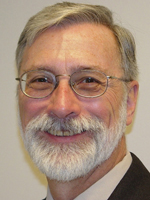The recent disaster in Japan has propelled the world into learning the latest information about nuclear energy from the current field of scientific experts. It is apparent science has played and will continue to play a key role in our global society. Dr. Alan Beyerchen, associate professor of History at The Ohio State University, will visit Newman University as the keynote speaker for the History Department’s annual History Speaker Series. Beyerchen will present a lecture entitled “From the Chemists’ War to the Physicists’ War and Beyond: Thoughts on What Science Brought to the Military Table in the Global Conflicts of the 20th Century.”
The History Speaker Series presentation, which is free and open to the public, will be held Thursday, April 7 at 7:30 in Eck Hall, room 124.

“It’s a truism among historians of science that the First World War was a struggle in which German prowess in chemistry played a major role in that country’s ability to hold much of the industrialized world at bay for four long years,” said Dr. Kelly McFall, history professor at Newman and a coordinator of the History Speaker Series. “It is also generally accepted that in the Second World War each side had excellent chemical and chemical engineering capabilities.’
McFall added that in our world’s history, physics and the engineering disciplines related to it, such as electronics, provided an amplified advantage to nations with strong capabilities in those fields. He offered The Cold War as another example. In this global conflict, each side institutionalized the role of physicists, and information played a vital role as a force amplifier. These questions and realizations lead Newman history professors to ponder, “Which science might be the next to play a crucial role on the global stage?” Beyerchen will help audience members discover the answer.
Beyerchen is the author of Scientists under Hitler, which examines the way scientists responded to Nazism. He has written numerous articles about science and technology in the Holocaust and in military history as well as on a variety of other subjects, and has served often as a guest lecturer and conference presenter. Currently, he is engaged in a study of how the elevation of science to its position as the most legitimate way of understanding the universe has impacted thinking about military policy, organization, and culture.

